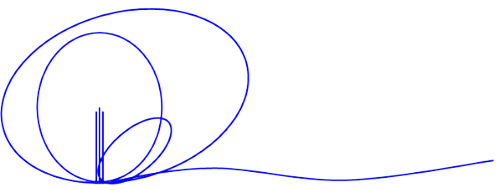Consideration of ethical and professional issues raised by Florida attorneys use of AI
- Florida Bar Ethics Opinion 24-1 (01/19/24). Overview of the opinion and the key technologies and attorney applications of AI that precipitated the advisory opinion. Includes specific mention and explanation concerning so called “AI hallucinations” wherein case law can be fabricated.
- In re Neusom, 2024 U.S. Dist. LEXIS 47595 (M.D. Fla, 01/12/24) (Judge Lee Hollander). Overview of key facts of the case which is the first opinion by a Florida court regarding an AI fabricated case.
- In re Neusom, 2024 U.S. Dist. LEXIS 40716 (M.D. Fla. 03/08/24) (Judge John Steele). Overview of sanctions against Florida attorney, including one year suspension from Middle District Court and report to The Florida Bar for possible further action.
- Overview of Key Rules Regulating the Florida Bar and application to Neusom and AI.
- Rule 4-1.3 of the Rules Regulating the Florida Bar (requires that: “A lawyer shall act with reasonable diligence and promptness in representing a client.”)
- Rule 4-3.3(a)(3) (requires that: “A lawyer shall not knowingly: fail to disclose to the tribunal legal authority in the controlling jurisdiction known to the lawyer to be directly adverse to the position of the client and not disclosed by opposing counsel.”)
- Rule 4-3.4(c) (requires that a lawyer must not “knowingly disobey an obligation under the rules of a tribunal except for an open refusal based on an assertion that no valid obligation exists.”)
- Rule 4-8.4(c) (requires that a lawyer shall not “engage in conduct involving dishonesty, fraud, deceit, or misrepresentation….”)
- Professionalism standards in Florida and application to Neusom and AI. Set forth in (1) the Florida Bar Professionalism Expectations; (2) the Rules Regulating the Florida Bar; (3) The Florida Bar Creed of Professionalism; and (4) the Oath of Admission to The Florida Bar.
Professional standards
- Candor and civility must be used in all oral and written communications, including online communications. (See R. Regulating Fla. Bar 4-8.4(c)).
- A lawyer must avoid disparaging personal remarks or acrimony toward opposing parties, opposing counsel, third parties or the court. (See R. Regulating Fla. Bar 4- 8.4(d)).
- A lawyer must not knowingly misstate, misrepresent, or distort any fact or legal authority to the court or to opposing counsel and must not mislead by inaction or silence. Further, the discovery of additional evidence or unintentional misrepresentations must immediately be disclosed or otherwise corrected. (See R. Regulating Fla. Bar 4-3.3 and 4-8.4).
- A lawyer should diligently prepare legal forms and documents to avoid future harm or litigation for the client while ensuring compliance with the requirements of the law.
- A lawyer must not engage in dilatory or delay tactics. (See R. Regulating Fla. Bar 4-3.2).
- A lawyer should be familiar with the court’s administrative orders, local rules, and each judge’s published standing orders, practices, and procedures.
- A lawyer must not invoke a rule for the purpose of creating undue delay or propose frivolous oral or written arguments which do not have an adequate basis in the law nor fact. (See R. Regulating Fla. Bar 4-3.1)
- A lawyer should be civil and courteous in all situations, both professional and personal, and avoid conduct that is degrading to the legal profession. (See R. Regulating Fla. Bar 3-4.3).
Credit to EDRM

